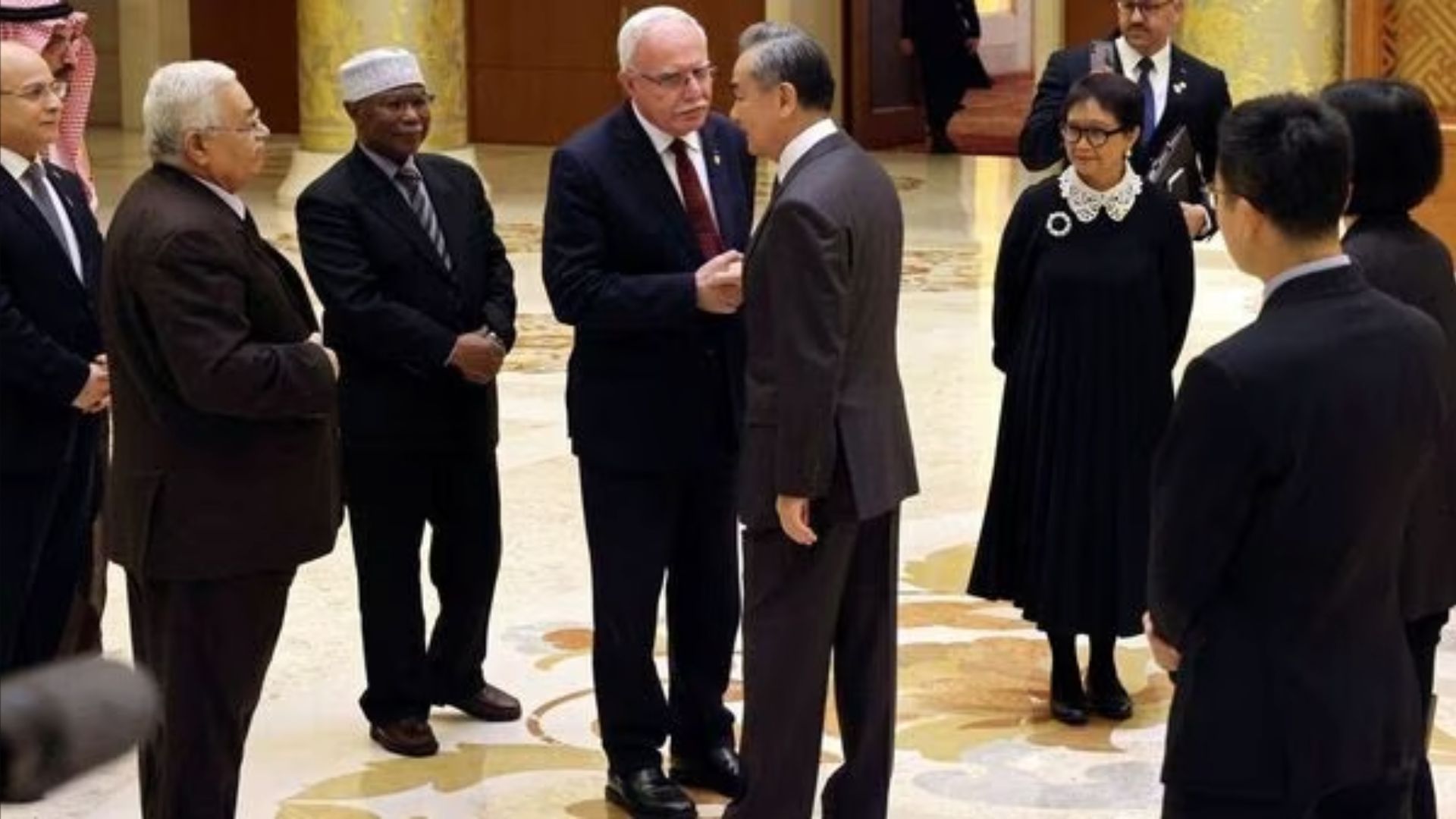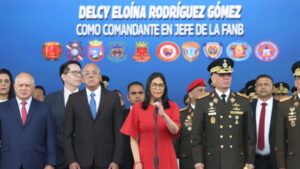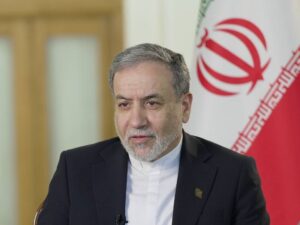
Published 11/21/2023 18:01 | Edited 11/22/2023 14:29
In the last few hours, China has declared itself more assertively than ever about the Israel-Palestine conflict at two important summits, in addition to the role it already maintains in the rotating Presidency of the UN Security Council. He received, this Monday (20), Arab and Muslim authorities in Beijing to discuss the matter, and, this Tuesday (21), the leaders of the BRICS group, made up of Brazil, Russia, India, China and South Africa, condemned vehemently condemned Israel’s war in Gaza during a virtual summit chaired by South African President Cyril Ramaphosa.
In a move to play an active role in seeking a ceasefire in Israel’s war in Gaza, Chinese Foreign Minister Wang Yi urged the international community to “act urgently” during a meeting in Beijing on Monday. fair (20). Officials from Saudi Arabia, Jordan, Egypt, the Palestinian Authority and Indonesia, as well as the head of the Organization of Islamic Cooperation (OIC), participated in the two-day meeting.
“China believes that consolidating the two-state solution is the best way to achieve justice and equity in this conflict,” Wang told visiting leaders. He emphasized that China “firmly upholds justice and impartiality” on the issue.
The head of Chinese diplomacy suggested joint action between Asian countries to advance the two-state solution, with the consolidation of the Palestinian state. Wang stressed that “China will always be on the side of the just cause of people’s rights.”
The visiting ministers expressed strong calls for an end to the conflict, with Saudi Arabian Foreign Minister Faisal bin Farhan Al Saud declaring that “the war must stop immediately.” They expressed their intention to cooperate with China and “all responsible countries” to address the seriousness of the situation.
Riyad al-Maliki, Foreign Minister of the Palestinian Authority, emphasized the urgency of concrete measures to change the conflict scenario and save lives in Gaza. “Proposals that we are evaluating must be adopted as soon as possible,” said al-Maliki, highlighting the threat to Palestinian lives.
The meeting comes amid reports that a possible deal to release some hostages and pause the fighting may be close, after weeks of Qatar-mediated talks between the United States, Israel and the militant group. Wang criticized Israel’s retaliation, calling for an end to collective punishment and the opening of a humanitarian corridor.
Counterpoint between powers
China has sought to play an active role in resolving the conflict, contrasting with the approach of the United States, the traditional mediator in the region. Beijing sent a peace envoy to the region last month and pushed for a ceasefire at the United Nations during its rotating CS presidency in November.
Last week, the Security Council passed its first resolution on the conflict, calling for the immediate release of hostages and the creation of humanitarian corridors in Gaza. China, which chaired the session, praised the decision, while the US and UK abstained.
The conflict offers China an opportunity to strengthen ties with Arab countries. Wang highlighted Chinese support for the legitimate rights and interests of Arab and Muslim countries, supporting Palestinian efforts to restore their legitimate national rights and interests.
Beijing, at odds with Washington over an immediate ceasefire, continues to position itself as an important actor in the search for a fair and lasting solution to the conflict in Gaza.
Alert two BRICS to the Global North
In a notable move, BRICS, which has historically focused on economic issues, called for an end to “war crimes” and urged both parties to cease hostilities to alleviate the humanitarian crisis in the region.
The complaint came in response to attacks on civilians in both Palestine and Israel. The group expressed concern about the forced displacement of Palestinians, calling it “war crimes.” The South African president highlighted that Israel’s actions violate international law, classifying the collective punishment of Palestinian civilians as equivalent to a war crime and genocide.
Although the BRICS group did not issue a joint statement, the “president’s summary” reflected the growing assertiveness of the Global South in addressing sensitive geopolitical issues. The meeting was attended by leaders of countries recently added to BRICS: Egypt, Ethiopia, Argentina, Saudi Arabia, United Arab Emirates and Iran.
United Nations Secretary-General António Guterres was also present, highlighting the growing global call to end the conflict in Gaza. The position of the Global South stands out, criticizing the stance of the United States, United Kingdom and European Union, which, despite calling themselves defenders of democracy and human rights, support Israel’s war.
Although India adopted a more moderate position, calling for restraint and immediate humanitarian support, other countries such as Russia and Brazil had already criticized Israel’s attacks, while China reinforced its positions by receiving a delegation from Muslim countries, seeking a cease -fire.
President Luiz Inácio Lula da Silva said that the BRICS need to act to prevent the war from spreading to other countries. Still according to the Brazilian president, the conflict in the Middle East is the result of decades of frustration and injustice, represented by the absence of a safe home for the Palestinian people. “It is essential to closely monitor the situation in the West Bank, where illegal Israeli settlements continue to threaten the viability of a Palestinian state,” emphasized the president.
South Africa, with a history marked by apartheid, has been one of the most vocal supporters of a ceasefire, despite being Israel’s largest trading partner on the African continent. On Tuesday, the South African Parliament voted to close the Israeli embassy in Pretoria, signaling a significant change in the bilateral relationship. Israel, in response to growing hostility, recalled its ambassador to South Africa.
The BRICS stance, traditionally avoiding political and security issues, marks a significant change. Combined, these countries represent 40% of the world’s population and a quarter of the global economy. The group has sought a more prominent voice in the global order, challenging Western hegemony led by the United States.
While South Africa, in particular, has influenced the group’s stance on the conflict in Gaza, the actual impact on the direction of Israel’s war remains unclear. However, the BRICS are becoming a more assertive bloc, seeking a more equitable and diverse world order.
The meetings are a sign that China, the richest country in the bloc, is intensifying its international role, filling the power vacuum left by the USA, according to political analyst Ibrahim Fraihat, in an analysis carried out for Aljazira. “The US shot itself in the foot by throwing its full weight behind Israel and, in doing so, diminished its role as a credible third-party actor,” said Fraihat of the Doha Graduate Institute.
“The Chinese authorities are very interested in this role – they have strong ties with Israel, they have the trust of the Palestinians and weight in the international system,” he added, referring to China’s veto power in the UN Security Council.
Source: vermelho.org.br

